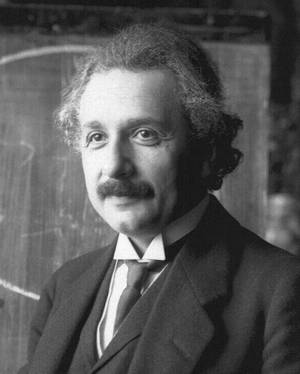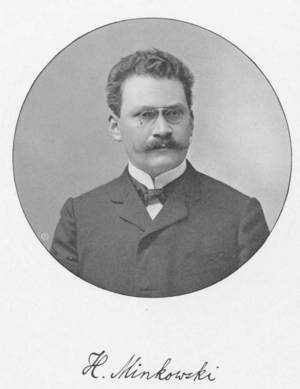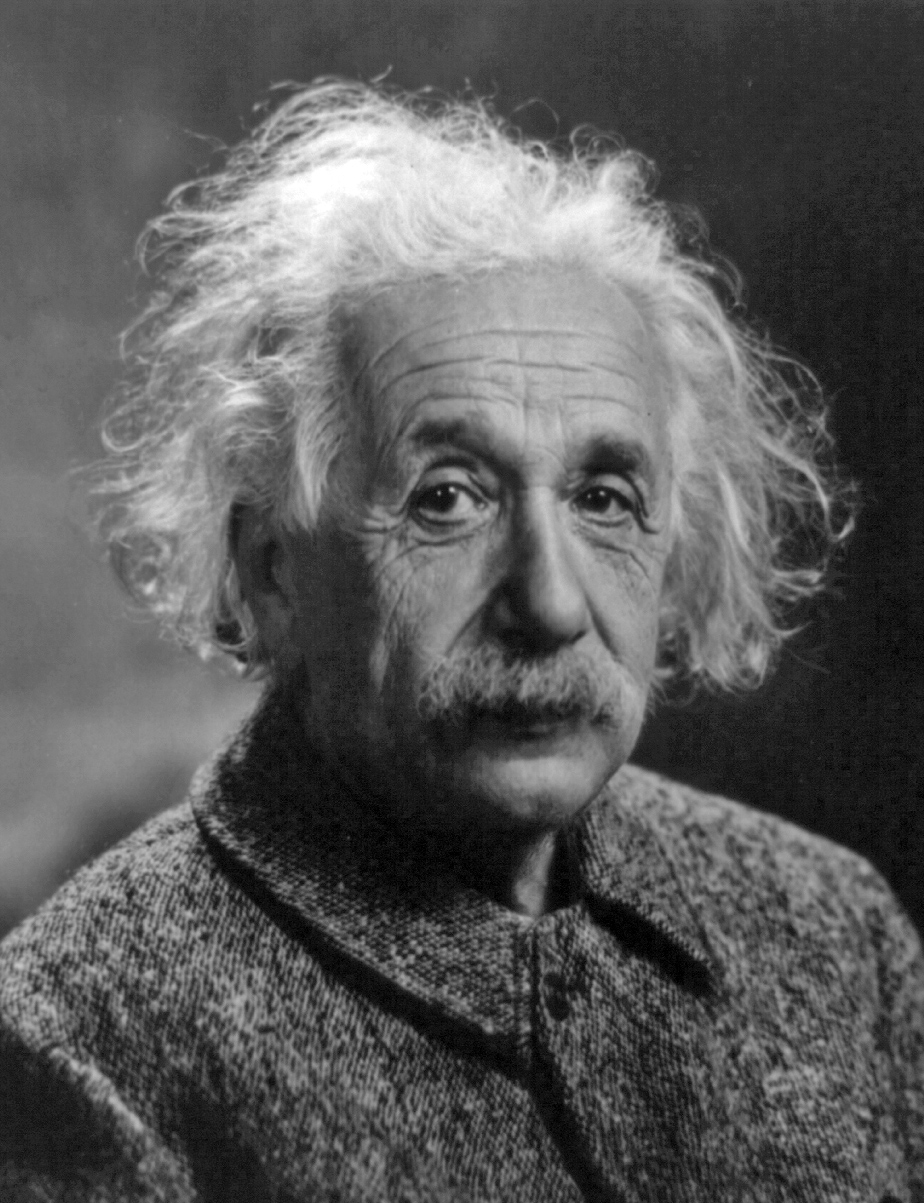Fact Impact: Relativity
25 January 2011
Interview with
Andrew Pontzen
- Relativity was born in 1905 when Albert Einstein published a seminal work titled "on the electrodynamics of moving bodies".
 As that name suggests, Einstein analysed the electronic behaviour of particles moving at high speed...
As that name suggests, Einstein analysed the electronic behaviour of particles moving at high speed...- ...but he realised that the implications of his theory extended way beyond that original motivation.
- In the same year that Einstein laid this ground-work for relativity...
- ...he also discovered a crucial foundation of quantum theory...
- ...explained how a bit of dust moves around in the air, by constant bombardment from microscopic air molecules
- ...and used his new "relativity" theory to show that E = mc2.
- It was the lesser-known Hermann Minkowski who later showed that Einstein's ideas could be expressed in the beautiful mathematical language of spacetime
- Einstein went on to spend eight years worrying that Newton's laws of gravity were not compatible with Minkowski's spacetime...
- ... ultimately leading to Einstein's 1915 paper which introduced "general" relativity, a new version of gravity...
- ...that was not only compatible with, but actually founded on, Minkowski's idea of spacetime.
- Einstein predicted a whole slew of counterintuitive effects from his relativity theories...
 ...if you travel at 100 miles per hour for 100 years, your watch will lose 35 microseconds compared to an identical watch left stationary
...if you travel at 100 miles per hour for 100 years, your watch will lose 35 microseconds compared to an identical watch left stationary- ...but if you sit still for 100 years on a stepladder 100 metres tall, the tiny difference in gravity means your watch will gain 35 microseconds compared to an identical watch on the ground
- ...So, clocks on high-altitude orbiting satellites should lose 7 microseconds per day because they're orbiting so fast
- ...but should gain 45 microseconds per day because they're so high up, so an overall gain of 38 microseconds per day
- ... a prediction that's been verified again and again in experiments, and is actually used every time a satellite navigation system calculates its location.
- General relativity is the key building-block in our modern understanding of space and the universe
- ... it explains why mercury's orbit does not quite agree with the prediction from Newton's gravity...
- ... it correctly describes how the path of light is bent when it passes near massive objects - everything from stars to galaxy clusters
- ... it predicts gravitational waves, the existence of which have been indirectly confirmed by watching how the rate of a pulsar changes over time...
- ... it gives us a framework to describe the universe from a tiny fraction of a second through to today, 13.6 billion years...
- ... for instance describing precisely how the overall expansion of the universe is affected by the gravitational pull of matter within the universe...
 ... leading to exact predictions which match the real universe in exquisite detail.
... leading to exact predictions which match the real universe in exquisite detail.- But relativity cannot be a complete theory of spacetime and gravity...
- ...the combination of Einstein's original relativity theory with quantum mechanics gives quantum field theory, the incredibly successful theory of fundamental particles
- ...but the combination of general relativity with quantum mechanics leads to mathematical nonsense
- ...meaning that gravity cannot be accommodated within quantum mechanics
- ...which troubled Einstein for the rest of his life
- ...and has led to a myriad of speculative mathematical ideas like string theory and loop quantum gravity
- ...none of which have yet been experimentally confirmed or rejected by cosmologists or physicists.









Comments
Mercury Relativity
Here you may find a simple post-Newtonian solution for Mercury's orbit precession
Gravity is a little big bigger than in Newton’s law; it increases with speed -kinetic energy- where the maximum is the double gravity in the case of light.
Global Physics also predicts the anomalous precession of Mercury’s orbit as Paul Gerber did 20 years before Einstein. https://molwick.com/en/gravitation/077-mercury-orbit.html
Add a comment